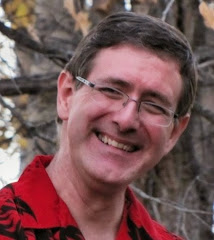Well, we have made it to another Christmas. This year it is good to have you in the building, the musicians and choir, the lights and music, as well as you at home or reading these words. It reminds me of “How the Grinch Stole Christmas”, and that the Grinch couldn’t steal Christmas because it’s not about the stuff, the gifts or the food. They are the side effects of the celebration, not the celebration itself. Just as Christmas for us is not only about parties and gifts but about something more. Something enduring. Something that inspires us to be the best selves we can be. Something that reminds us of the Power of Love.
There are a lot of
examples of the opposite, something the Vancouver School of Theology called the
love of power. We see that in the news
about last year’s attempted coup in the U.S., a chilling attack on the
democratic process. We saw that when
graves were discovered on the grounds of residential schools in Canada this
summer. We are seeing that in Shanghai after their elections of pro-Communist
politicians. And we see that here at home in officials who have Christmas
parties flaunting the rules of gathering, or that set policies around family
gatherings for personal preference, regardless of what the science says.
The love of power is
insidious. It is an infection that is
hard to diagnose. It is seen in politics
but also in abusive relationships, in workplaces, in parenting styles, in
family gatherings, in classrooms and community organizations. It is a hard infection to treat because we
often don’t even realize we have it.
Its symptoms are hidden
in microaggressions, in people rolling their eyes at someone else’s comments,
or in anger bursts that are bigger than necessary. It’s in plain sight in people who wander our
stores without masks on, or in complaints to town council or school boards
about masks and vaccinations. It is in
plain sight when our health care nurses in Alberta need security guards to make
sure they get home safely after work. It
is seen when organizations like CBC deciding not to allow discussions on
Facebook because the vitriol has become so ugly. Sometimes it is heard, as Severna and I had
the misfortune of hearing, over the phone as one person yelled and swore at
another person when they thought we weren’t listening. Power over.
From the tiny comments of “Honey, take the garbage out” when honey has
already done a myriad of tasks that day, to the big actions of vandalism, like
the fires in Athabasca that happened this summer. Our world is infected with the craving to
have power over someone else.
Into this world of Love
of Power, Something sneaks in. Whether
you call that something the Deep Mystery, the Great Architect, the Flying Spaghetti
Monster, the Spirit of Music or Art, I don’t care much, but it sneaks in to vaccinate
the world with the Power of Love. It
takes a very nasty and insecure individual to feel threatened by a tiny new
baby, and the people who were most infected to the Love of Power were indeed
threatened. But the people who didn’t
have much power, the poor staying in a barn, the shepherds living with no fixed
address, the villagers and neighbors, they felt the Power of Love.
That moment of fragile
vulnerability, a tiny hand waving in the air, a set of new lungs breathing in
the aroma of cows and sheep and donkeys and straw, that was a clear sign that
something was up, something had changed, and the world would be a different
place from that time on.
I see that power of
love when I hear that first nations people are rebuilding their burnt down
church in St. Theresa Point First
Nation in northern Manitoba. I see that
power of love when bags of clothes are dropped off for the homeless
without even being asked, and people know they will get to folks in need. I see that when a Christmas letter with no
return address comes for me and I find gift cards to A&W. It said “because we have decided to cancel
all gatherings, we would like to give you the gift cards… if you know of
someone who is struggling and could use a bit of sunshine… please gift the
cards to them. We appreciate your
dedication to the community.” That’s the
Power of Love.
When we come here,
listen to the stories, the music, the words of glad tidings of great joy, we
are choosing to be vaccinated with the Power of Love. We get our booster shots against our most
terrible infection, and we remember once again that the Power of Love continues
to change lives here and now. The Power
of Love conquers all fear and is the best tiding of great joy the world has
ever known. The Power of Love continues
to work in us and others whenever we ponder the Christmas Story deep in our
hearts like Mary did so many years ago. The
Power of Love cures our deepest diseases and infections. May we find hope and courage to choose that
love in all we do in the days to come.
Amen.














